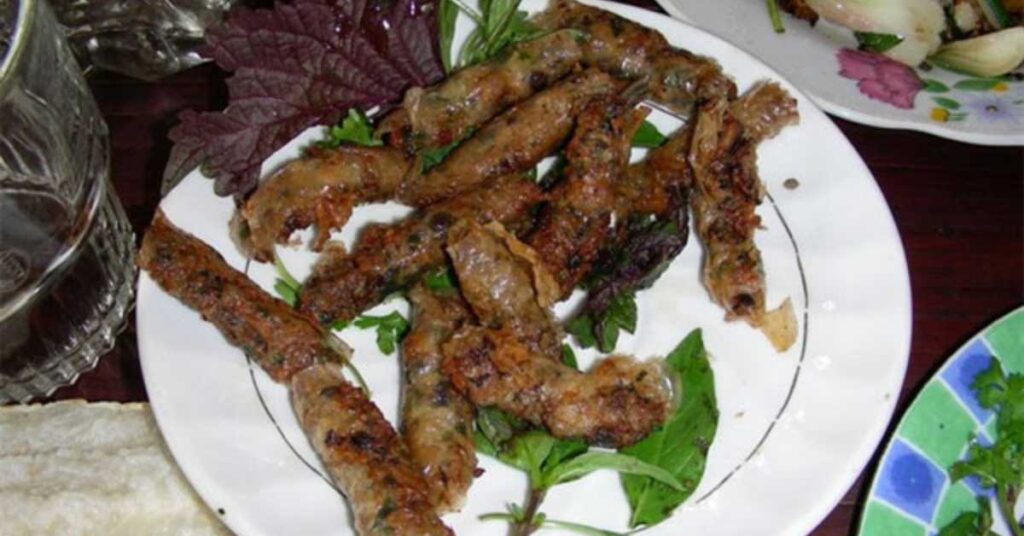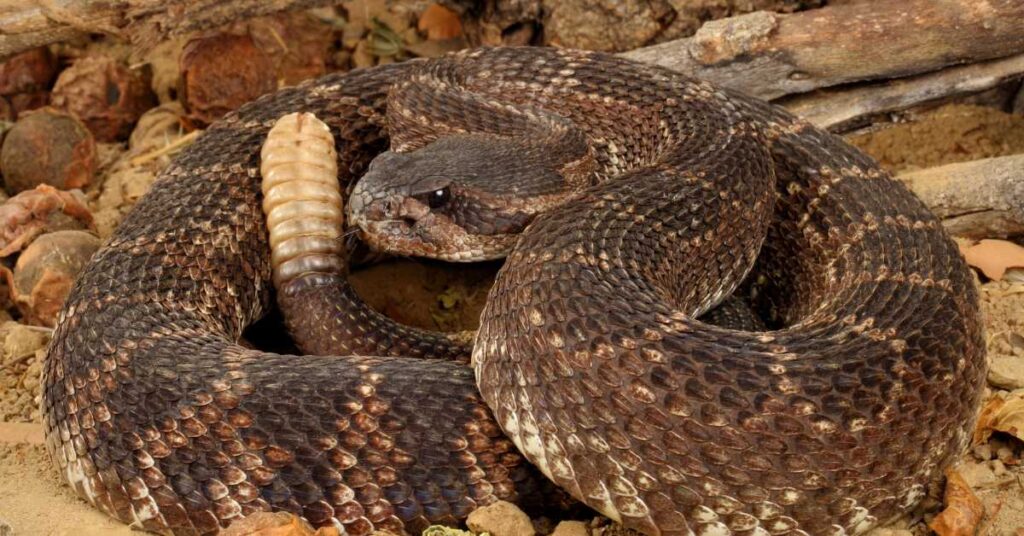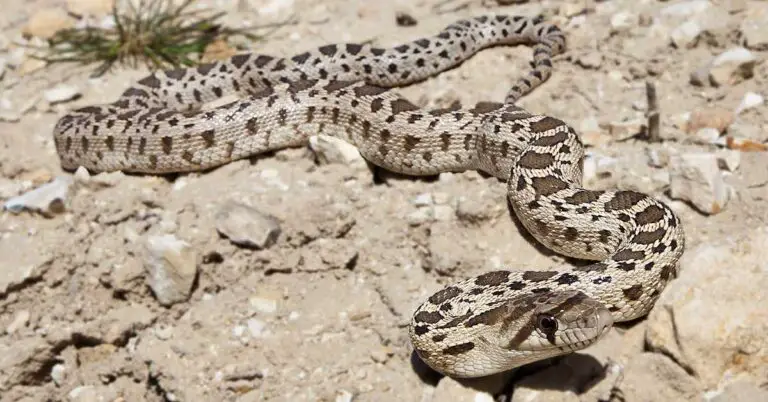Can you eat snake meat? Yes, snake meat is completely edible and delicious. People have been eating snakes all over the world for thousands of years. Snakes are just like any other source of wild protein. They can be found in almost every climate (except for places like Antarctica).
Have you ever wondered if you can sink your teeth into the mysterious world of snake meat? Like a curious traveler exploring uncharted territories, you may find yourself craving a sense of belonging to a world where exotic flavors and daring culinary adventures await.
In this quest for belonging, you may have come across the tantalizing question: can you eat snake meat? This intriguing inquiry delves into cultural perspectives, legalities, taste sensations, and even potential health benefits and risks associated with consuming snake meat.
So, let us embark on this culinary exploration together, unraveling the mysteries of snake meat and discovering if it can truly satisfy your adventurous appetite.
Key Takeaways
- Snake meat is considered a delicacy in many cultures and is believed to have medicinal properties.
- Laws and regulations govern the hunting, trading, and selling of snakes and their meat to prevent overexploitation and protect endangered species.
- Snake meat has a unique flavor and can be prepared in various ways, such as grilling and stewing.
- Eating snake meat can provide health benefits due to its rich protein content and essential nutrients, but it also carries potential risks and ethical considerations.
Cultural Perspectives on Snake Meat
In your cultural context, you may wonder about the perspectives surrounding snake meat consumption.
Snake meat is considered a delicacy in many cultures, prized for its unique taste and texture. In some regions, it’s even believed to have medicinal properties and is used in traditional medicine practices.
The consumption of snake meat has deep-rooted traditions and cultural significance, often symbolizing strength and vitality. It’s prepared in various ways, from grilling to stewing, and is often served with flavorful herbs and spices.
While some individuals embrace snake meat as part of their cultural heritage and culinary experience, others may hold reservations due to ethical or religious reasons.
Understanding these cultural perspectives can provide insight into the diverse beliefs and practices surrounding snake meat consumption.

Legalities and Regulations Surrounding Snake Consumption
When it comes to consuming snake meat, you need to be aware of the legalities and regulations surrounding its consumption. Snake meat consumption can have significant environmental impacts, and it’s crucial to understand the conservation efforts in place to protect these reptiles.
In many countries, laws govern the hunting, trading, and selling of snakes and their meat. These regulations aim to prevent overexploitation and protect endangered snake species. For example, in some regions, it’s illegal to hunt or trade certain snake species due to their declining populations. Additionally, there may be restrictions on the methods used to capture and kill snakes for consumption.
Conservation organizations work diligently to promote sustainable practices and raise awareness about the importance of preserving snake populations. It’s vital to respect and comply with these regulations to ensure the long-term survival of these fascinating creatures.
Snake Meat: Taste and Culinary Uses
Have you ever wondered what snake meat tastes like and how it can be used in culinary dishes?
Snake meat has a unique flavor that can vary depending on the species and the way it’s cooked. Some describe it as having a delicate and slightly gamey taste. Then others describe it as similar to chicken. The taste preferences for snake meat can differ among individuals, with some enjoying its distinct flavor, while others may find it too strong for their liking.
In terms of culinary uses, snake meat can be prepared in various ways. It can be grilled, fried, or even used in soups and stews. Cooking techniques such as marinating or seasoning can help enhance the flavor and make it more palatable.

Potential Health Benefits of Eating Snake Meat
Snake meat offers potential health benefits that may surprise you. While it may not be a common choice in Western cuisine, snake meat has been consumed for centuries in various cultures around the world.
Here are some of the potential health benefits and nutritional value of eating snake meat:
- High protein content: Snake meat is a rich source of protein, which is essential for muscle growth, repair, and overall body function.
- Low in fat: Compared to other meats, snake meat tends to be low in fat, making it a healthier option for those watching their fat intake.
- Rich in essential nutrients: Snake meat contains vitamins and minerals such as vitamin B12, zinc, and iron, which are important for maintaining a healthy immune system and preventing deficiencies.
Potential Health Risks Associated With Snake Consumption
While incorporating snake meat into your diet can offer potential health benefits, it’s important to be aware of the potential health risks associated with consuming snake meat.
One of the risks is snake meat allergies. Just like any other type of meat, some individuals may develop an allergic reaction to snake meat. It is rare but it is possible. Symptoms can range from itching and hives to more severe reactions such as difficulty breathing and anaphylaxis.
It is also important to make sure to field dress, clean, and prepare the snake meat to prevent contamination.
Ethical Considerations in Eating Snake Meat
Considering the potential health risks associated with consuming snake meat, it’s essential to address the ethical considerations surrounding its consumption.
When it comes to eating snake meat, several ethical implications should be taken into account:
- Conservation: Many snake species are already endangered or at risk due to habitat loss and illegal wildlife trade. Eating snake meat further contributes to their decline and disrupts the delicate balance of ecosystems.
- Cultural sensitivity: In some cultures, snakes are revered as sacred animals. Eating snake meat may be seen as disrespectful and offensive to these cultural beliefs.
Considering these ethical concerns, it’s important to think twice before indulging in snake meat and consider the environmental impact and potential harm it may cause.
Frequently Asked Questions
How Long Has Snake Meat Been Consumed in Different Cultures?
In different cultures, snake meat has a long history of consumption. It has been a part of their traditions for centuries. People have enjoyed the unique taste and nutritional value of snake meat.
What Are the Legal Consequences of Consuming Snake Meat in Certain Countries?
In certain countries, consuming snake meat can have legal consequences. The legal regulations surrounding snake meat vary from country to country. Additionally, snake meat holds cultural significance in some cultures, often being seen as a delicacy or used in traditional medicine.
What Are Some Unique Ways to Prepare Snake Meat in Different Cuisines?
Snake meat recipes are diverse and culturally significant in various cuisines. From snake soup in Chinese cuisine to snake curry in Southeast Asian dishes, the preparation of snake meat showcases the creativity and unique flavors of different cultures.
Can Eating Snake Meat Help in Improving Specific Health Conditions?
Improving cardiovascular health and enhancing your immune system are important goals. Snake meat, known for its unique taste and texture, can be a delicious addition to your diet that may help you achieve these objectives.
Are There Any Environmental Concerns Related to the Consumption of Snake Meat?
Eating snake meat may have environmental concerns. The consumption of snakes can impact their populations and disrupt ecosystems. Conservation measures are important to ensure the sustainability and preservation of snake species and their habitats.
Is Snake Meat a Practical Food When It Comes To Survival?
Snake meat can be a practical food source in survival situations due to its nutritional value and accessibility in certain regions. It is lean, low in fat, and a good source of protein, making it a valuable option for sustaining energy and muscle function.
Additionally, snake meat can be found in various ecosystems worldwide, making it accessible in many survival scenarios. It can also be prepared in a variety of ways including drying, grilling, frying, baking, and more.
Do They Eat Snakes in Texas?
Yes, snake consumption is not uncommon in Texas. In certain regions of Texas, particularly in rural areas and among some indigenous communities, snake meat is considered a traditional and occasionally consumed food source. It’s essential to note that snake consumption is not widespread across the state and is more prevalent in specific cultural contexts or as a novelty.

Is It Good to Eat Python Meat?
Python meat can be consumed, and it is considered edible. In some regions where pythons are found, particularly in Southeast Asia and parts of Africa, python meat is consumed as a traditional food source. It is typically described as white meat with a mild flavor and a texture similar to chicken or fish.
Python meat is a good source of protein and can provide sustenance. In recent years in the state of Florida, pythons have been invasive and a nuisance. In this case, the state of Florida created a hunting season for people to hunt Burmese Pythons to control the population.
In addition to the hunting season, restaurants in certain parts of the country have started serving python dishes.
Conclusion
In conclusion, snake meat can be consumed in various cultures around the world, with a unique taste and culinary versatility.
However, it’s important to be aware of the legalities and regulations surrounding snake consumption.
While snake meat may offer potential health benefits, such as being a source of lean protein, there are also potential health risks associated with consuming it.
Additionally, ethical considerations should be taken into account when deciding whether to eat snake meat.




